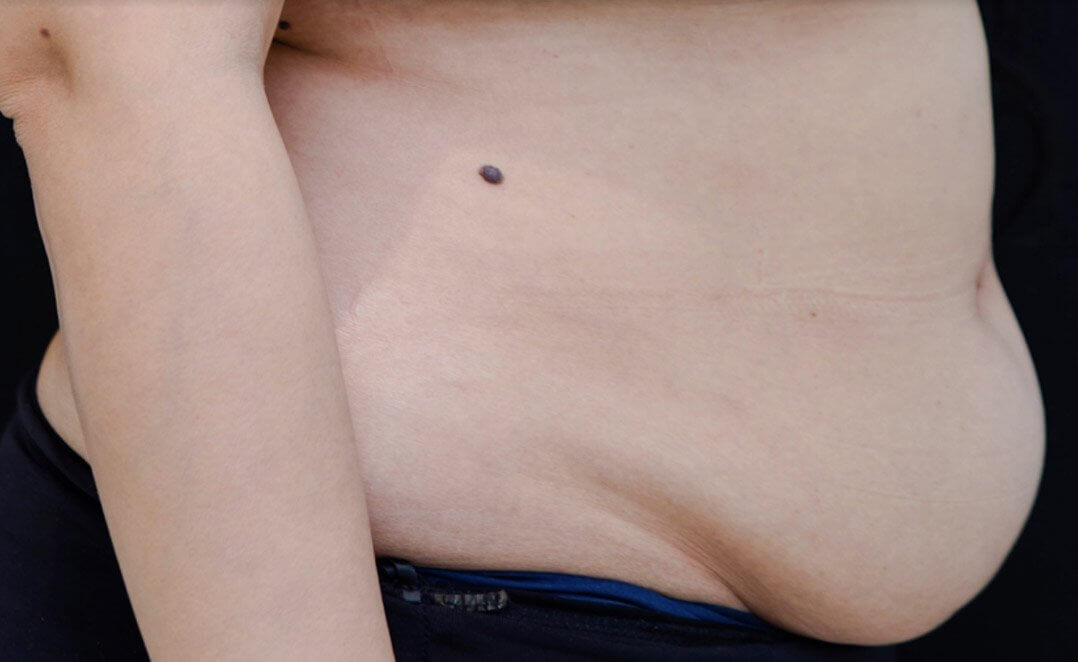
Introduction
Obesity goes beyond weight gain; it triggers chronic inflammation that weakens immunity. This condition elevates pro-inflammatory proteins like leptin and lowers anti-inflammatory ones like adiponectin.
These shifts impact immune cell activation and alter leukocyte counts, affecting the body’s defense system. Shockingly, around 68% of ICU patients facing severe complications are obese, leading to higher mortality rates.
How Does Obesity Affect Immunity?
Several factors within obesity contribute to this immune turmoil. When someone’s body has too much fat, a few things happen that mess with their immune system. The body makes more of a thing called leptin and less of something called adiponectin, and some fatty acids cause inflammation.
Having too many nutrients and fat cells getting bigger stresses out the cells. Plus, when fat tissue doesn’t get enough oxygen, it gets inflamed. All this leads to more inflammation and changes in how the immune system works, causing health problems with how the body uses energy.
It’s interesting that the fat around organs and having a big belly are more important for this swelling than just being big all over.
This link between the swelling in these specific fat areas and changes in how the immune system works is closely tied to getting health problems related to how the body uses energy.
When the immune system gets messed up because of too much fat, it can cause lots of health problems. It can make it harder for the body to deal with insulin and sugar, leading to diabetes. It might also cause issues like arthritis, high blood pressure, trouble breathing during sleep, and a fatty liver.
When doctors need to use anesthesia for surgeries, it can be tougher because the medication stays longer in the fatty tissues.
Immune Response in Obese Individuals
In obese individuals, their body’s defense system doesn’t work right because of ongoing swelling caused by too much fat. This constant swelling messes up how their protective cells function, making it hard for them to fight off sickness. This change makes obese people more likely to have health problems like infections, issues with metabolism, and long-term illnesses.
What is Bariatric Surgery?
Bariatric surgery, also known as weight loss surgery or gastric surgery, is a way to help people lose weight by making the stomach smaller. This helps them eat less, leading to weight loss that sticks around. Doctors suggest this surgery for individuals with a body mass index (BMI) higher than 35, especially if they have other health issues like heart problems.
Type of Bariatric Surgery:
Bariatric surgery helps obese people with different procedures:
Gastric Bypass (Roux-en-Y Gastric Bypass): Doctors make a small pouch in the top part of the stomach and connect it to a lower part of the small intestine. This makes the stomach smaller and changes how food travels.
Sleeve Gastrectomy: They remove about 80% of the stomach, making it look like a banana. This makes your stomach smaller permanently, so you eat less and feel full faster.
Adjustable Gastric Band: A special band is placed around the top of the stomach. It creates a small space, so you can’t eat a lot. It’s adjustable by adding or removing fluid.
Biliopancreatic Diversion with Duodenal Switch (BPD/DS): It’s a two-step surgery. First, they remove part of the stomach. Then, they join the end of the intestine to the duodenum near the stomach, avoiding most of the intestine.
Weight Loss Surgery Benefits:
Apart from helping people lose weight, surgery can also make other health issues better. It can improve conditions like:
Diabetes
High blood pressure
Acid reflux
Heart disease
High cholesterol
Back pain, and more.
COVID-19 and Obesity: Serious Risks and Connections
COVID-19 worsens the scenario. A British study involving nearly 17,000 hospitalized patients found that a third of those hospitalized for two weeks or more were at higher risk due to underlying health issues. For ICU patients, the mortality rate was staggering, reaching 45% and increasing to 53% for those requiring invasive ventilation.
Among these patients, pre-existing conditions like chronic heart disease, diabetes, chronic pulmonary disease, and asthma were prevalent. Obesity stood out, elevating the risk of death by 37%. The BMI over 30 emerged as a significant factor associated with mortality.
Experts link this heightened risk in obese individuals to reduced lung function and potentially more inflammation in adipose tissue. The fat around organs can make COVID-19 worse, showing how obesity, immune response, and health problems are connected.
Conclusion:
Bariatric surgery helps by reducing body weight and improving metabolic health and immune function. These surgeries cut down extra fat, possibly lowering chronic inflammation and related health risks.
Knowing how obesity, immune response, and bariatric surgery link is vital for better health and reducing severe illness risk.
Explore CosmeSurge’s Bariatric Surgery Services for deeper insights into how surgery improves health and immune response. For expert guidance on obesity-related health concerns, you can consult specialists like Dr. Samir Rehmani.
Surgical Services
Non-Surgical Services
- Anti-wrinkle Injection & FIllers
- Body Contouring & Cellulite
- Emsculpt
- Endymed 3Deep
- Experience Relief from Pain and Discomfort with Presso Therapy from a Qualified Surgeon
- Experience the Benefits of Arosha Body Wrap: Rejuvenate Your Skin and Feel Refreshed!
- Experience the Benefits of LPG Treatment: Rejuvenate Your Skin and Feel Refreshed!
- Experience the Benefits of VelaShape 3: Non-Invasive Body Contouring for Smoother, Firmer Skin.
- ICEwrap
- NuEra
- Redustim
- Say Goodbye to Stubborn Fat with CoolSculpting Fat Freeze!
- Shape Your Body with Sculptsure: Find a Sculptsure Surgeon to Help You Achieve Your Goals
- SmoothShapes
- Viora Life
- Dermatology
- Brighten Your Complexion with Glutathione Injections: Get a Whiter, More Radiant Skin Tone Today!
- Discover the Benefits of Professional Skin Treatment with a Skincare Specialist
- Enhance Your Lips with Lip Fillers and Contouring for a Natural Look
- Excessive Sweating
- Experience the Benefits of Botox Treatment: Look Younger and Feel Confident!
- Experience the Benefits of Skin Tightening with Thermage: Look Younger and Feel Confident!
- Rejuvenate Your Hair with PRP Hair Treatment and Mesotherapy
- Say Goodbye to Acne and Acne Scars with Professional Treatment Options
- Say Goodbye to Melasma: Get Professional Pigmentation Treatment Today
- Say Goodbye to Rosacea: Discover the Latest Rosacea Acne Treatment Options
- Say Goodbye to Unsightly Varicose and Spider Veins with Professional Treatment Options
- Say Goodbye to Unwanted Moles and Skin Tags with Professional Removal Services
- Skin Booster
- Transform Your Hair with Professional Hair Treatment and Hair Fixing Services
- Viora Life
- Dental
- Facial Therapies
- Gynaecology
- Hair Restoration






